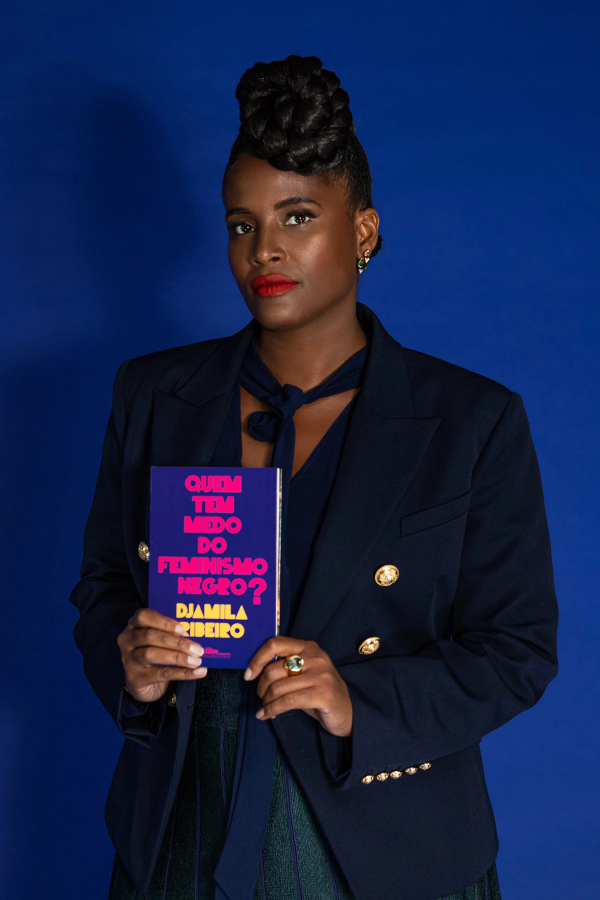In Residence
AB Chair
Djamila Ribeiro

Djamila Ribeiro is a public intellectual, writer and philosopher, a social justice activist, and one of the most influential leaders in the Afro-Brazilian women’s rights movement. A prolific essayist, Ribeiro was one of 51 authors from 25 countries invited to contribute to The Freedom Papers (2018). She is the author of two significant books including Quem tem medo do feminismo negro? (‘Who is afraid of Black feminism?’, 2018), a collection of articles on topics such as social mobilization, racial quota policies, and the origins of Black feminism in Brazil and America. Ribeiro is committed to sharing the thinking of others, through the editorial initiative, Sueli Carneiro’s Seal and Plural Feminisms. She is the coordinator of the Sueli Carneiro editorial Seal and the Plural Feminisms Collection, an independent editorial initiative that has changed the publishing market in Brazil. She is the author of several books and is a professor in the Journalism department at the Pontifical Catholic University of São Paulo (PUC-SP). A Columnist for Folha de S. Paulo newspaper, Ribeiro was Deputy Assistant of Human Rights for the city of São Paulo in 2016. She was awarded the 2019 Prince Claus Award, granted by the Kingdom of the Netherlands and considered by BBC one of the 100 most influential women in the world, the same year. Ribeiro is an online columnist, blogger and regular columnist for the daily paper Folha de Sao Paulo and Marie Claire Magazine. In 2019 she published Pequeno Manual Antirracista and was named Prince Claus Laureate by the Netherlands Prince Claus Fund for Culture and Development. And in March 2023, she gave a keynote address to the UN General Assembly on occasion of the International Day of Remembrance of the Victims of Slavery and the Transatlantic Slave Trade.
Graduate Seminar
During her stay at KJCC in Fall 2024, she will teach the graduate seminar “Feminisms from the South” on Tuesdays, from 2:00 pm to 4:30 pm.
This seminar calls upon Lélia Gonzalez's concept of Améfrica in order to identify its role as an intellectual category in thinking through new civilizatory frameworks. We will discuss the work of theorists from Brazil, the Caribbean, and South and Central America, where women writers of the Global South struggle to amplify their work in the face of a colonial politics of translation that exports critical work from the North to the South according to a primarily uni-directional model. By elevating the visibility of some of these contributions, this seminar proposes a dialogue between Feminisms. The course will be conducted in English with readings in English, Portuguese, and Spanish.

--